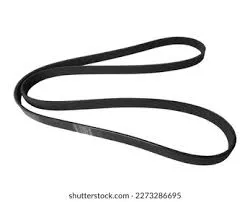- Arabic
- French
- Russian
- Spanish
- Portuguese
- Turkish
- Armenian
- English
- Albanian
- Amharic
- Azerbaijani
- Basque
- Belarusian
- Bengali
- Bosnian
- Bulgarian
- Catalan
- Cebuano
- Corsican
- Croatian
- Czech
- Danish
- Dutch
- Afrikaans
- Esperanto
- Estonian
- Finnish
- Frisian
- Galician
- Georgian
- German
- Greek
- Gujarati
- Haitian Creole
- hausa
- hawaiian
- Hebrew
- Hindi
- Miao
- Hungarian
- Icelandic
- igbo
- Indonesian
- irish
- Italian
- Japanese
- Javanese
- Kannada
- kazakh
- Khmer
- Rwandese
- Korean
- Kurdish
- Kyrgyz
- Lao
- Latin
- Latvian
- Lithuanian
- Luxembourgish
- Macedonian
- Malgashi
- Malay
- Malayalam
- Maltese
- Maori
- Marathi
- Mongolian
- Myanmar
- Nepali
- Norwegian
- Norwegian
- Occitan
- Pashto
- Persian
- Polish
- Punjabi
- Romanian
- Samoan
- Scottish Gaelic
- Serbian
- Sesotho
- Shona
- Sindhi
- Sinhala
- Slovak
- Slovenian
- Somali
- Sundanese
- Swahili
- Swedish
- Tagalog
- Tajik
- Tamil
- Tatar
- Telugu
- Thai
- Turkmen
- Ukrainian
- Urdu
- Uighur
- Uzbek
- Vietnamese
- Welsh
- Bantu
- Yiddish
- Yoruba
- Zulu
Dec . 12, 2024 10:26 Back to list
Understanding Timing Belts and Their Importance in Engine Performance and Maintenance
Understanding the Timing Belt An Essential Component of Your Vehicle
The timing belt is a critical element in the engine of an internal combustion vehicle. Acting as a synchronizing component, the timing belt plays a pivotal role in ensuring the engine's camshaft and crankshaft operate in harmony, allowing for precise timing of the engine's intake and exhaust cycles. Though often overlooked, the timing belt’s significance cannot be understated in the realm of automotive maintenance and repair.
Function of a Timing Belt
The primary function of the timing belt is to maintain the synchronization between the crankshaft and camshaft. The crankshaft is responsible for converting the linear motion of the pistons into rotational motion, while the camshaft controls the opening and closing of the engine's valves. If these two components are not perfectly synchronized, the engine can suffer serious damage, leading to expensive repairs or even complete engine failure.
The timing belt is typically made from high-quality rubber with fiber reinforcement, allowing it to withstand the immense stress and temperatures generated during engine operation. The belt's teeth grip the sprockets of the crankshaft and camshaft, delivering precise movement and preventing slippage.
Signs of Timing Belt Wear
As with any mechanical component, the timing belt is subject to wear and tear over time. Most manufacturers recommend replacing the timing belt every 60,000 to 100,000 miles, but various factors, such as driving conditions and engine type, can influence this timeline. It is important for vehicle owners to be aware of the warning signs indicating that their timing belt may need to be replaced.
Common signs of a failing timing belt include
1. Unusual Engine Noises A worn-out timing belt may produce a whining sound or a ticking noise that becomes more pronounced as the engine runs. 2. Engine Misfires or Poor Performance If the timing belt begins to slip, it can result in misfiring cylinders, leading to sluggish acceleration and reduced power output.
3. Oil Leaks A failing timing belt can sometimes cause damage to the engine, leading to oil leaks. If you notice spots of oil under your vehicle, further inspection is advised.
timing belt viva

4. Dashboard Warning Lights Modern vehicles come equipped with onboard diagnostics that may trigger a warning light related to engine timing issues. Ignoring these alerts can lead to severe engine damage.
Replacement of the Timing Belt
If any of the above symptoms are present, or if you have reached the recommended mileage for replacement, it is essential to have the timing belt inspected and potentially replaced. The process typically involves several steps
1. Inspection A mechanic will assess the condition of the timing belt and related components, including tensioners and pulleys.
2. Replacement If wear is evident, the mechanic will remove the old timing belt and install a new one, ensuring all components are properly aligned.
3. System Check Once replaced, the engine will undergo a thorough examination to ensure that it runs smoothly and that the new timing belt is functioning correctly.
Cost of Timing Belt Replacement
The cost of timing belt replacement can vary significantly based on the make and model of the vehicle. Generally, the replacement can range from $500 to $1,000, including parts and labor. While this may seem steep, it is crucial to consider the potential costs associated with engine damage due to a failed timing belt, which could reach thousands of dollars.
Conclusion
The timing belt is indeed a vital component of any vehicle's engine system, playing an essential role in ensuring that your engine runs efficiently and reliably. Regular maintenance and timely replacement can not only enhance your vehicle's performance but also extend its lifespan. Understanding the importance of the timing belt can save drivers from costly repairs and provide peace of mind on the road. Always consult a qualified mechanic to discuss your vehicle's maintenance schedule, and remember, a little preventive care goes a long way in automotive health.
-
Korean Auto Parts Timing Belt 24312-37500 For Hyundai/Kia
NewsMar.07,2025
-
7PK2300 90916-T2024 RIBBED BELT POLY V BELT PK BELT
NewsMar.07,2025
-
Chinese Auto Belt Factory 310-2M-22 For BMW/Mercedes-Benz
NewsMar.07,2025
-
Chinese Auto Belt Factory 310-2M-22 For BMW/Mercedes-Benz
NewsMar.07,2025
-
90916-02660 PK Belt 6PK1680 For Toyota
NewsMar.07,2025
-
drive belt serpentine belt
NewsMar.07,2025

